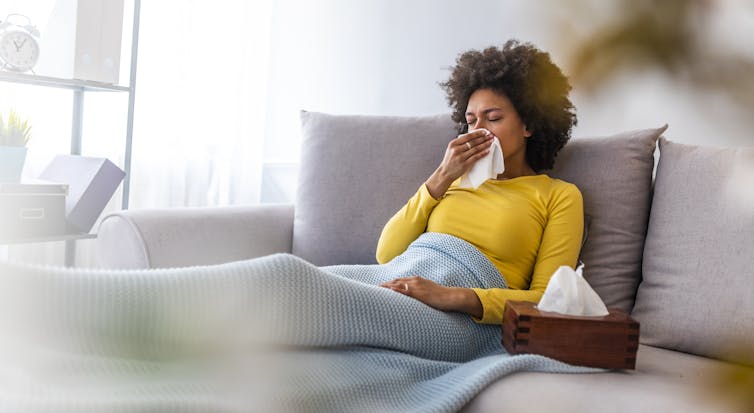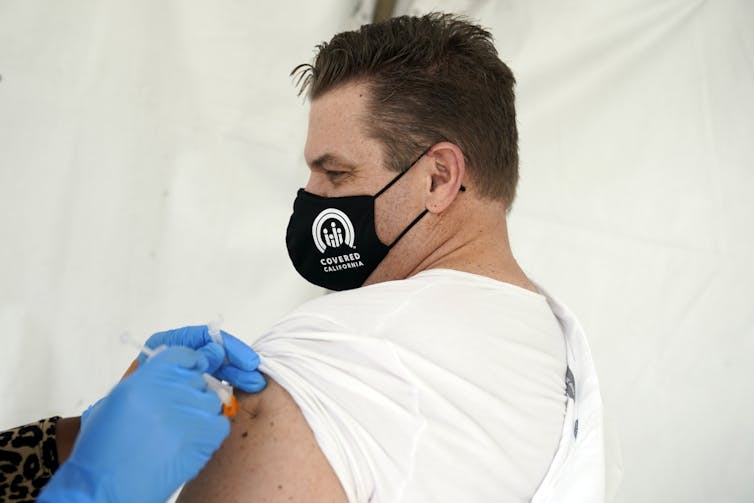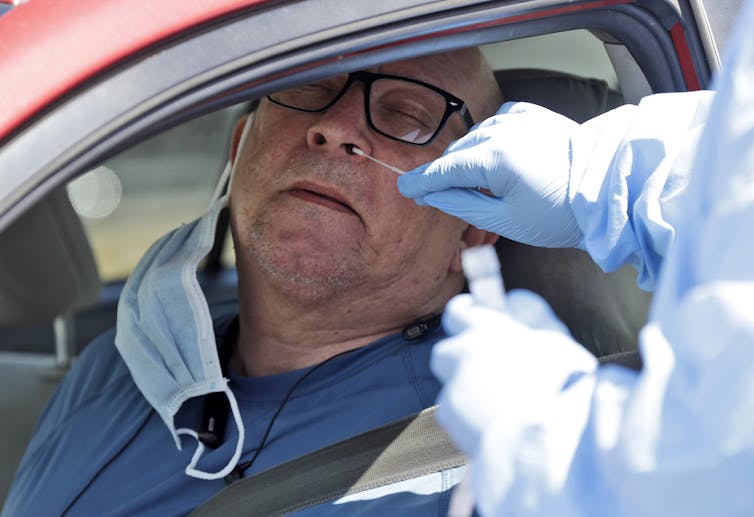Should I get tested for COVID-19?
Arif R. Sarwari, West Virginia University
 |
| Some people can still get sick after getting vaccinated for COVID-19. Dragana991/iStock via Getty Images Plus |
As an infectious disease physician, I am often asked this question. The answer is yes.
If you have symptoms of COVID-19, you should get tested for COVID-19 even if you are fully vaccinated. You won’t be at high risk for hospitalization or severe disease, but if you are infected you may pass the virus to an unvaccinated person, who could then get very sick.
 |
| Vaccination prevents more than 90% of severe COVID-19 cases, but researchers think that only 70%-85% of vaccinated people are completely protected from any infection. AP Photo/Marcio Jose Sanchez |
Vaccines work but aren’t 100% effective
Researchers have developed some amazing COVID-19 vaccines over the past year. The high efficacy of these vaccines in the closely controlled environment of clinical trials matches their effectiveness in real life.
The mRNA vaccines made by Pfizer and Moderna remain over 90% effective in preventing hospitalization or death.
That does not, however, mean that you have the same degree of protection from getting infected.
The latest research estimates that the mRNA vaccines offer 70% to 85% protection from getting infected at all. It’s impossible to know whether a person is fully protected or could still develop a mild case if exposed to the coronavirus.
If you did happen to get infected, you could still spread the virus. And that’s why testing is still important.
What is a breakthrough case?
When a person gets infected with the coronavirus after being fully vaccinated, this is called a breakthrough case. Breakthrough cases demonstrate a basic principle of infectious disease – whether or not a person gets infected depends on the balance between two factors: intensity of exposure and immune competence.
Intensity of exposure relates to how close an uninfected person is to a highly infectious individual spewing virus while talking and how long the two people are in contact. Immune competence relates to the body’s inherent protection against COVID-19.
Unvaccinated individuals who’ve never been infected with the coronavirus have no protection – this is a completely new virus after all – while fully vaccinated people will be much more protected.
According to the CDC, as of April 30, 2021, there had been a total of 10,262 known SARS-CoV-2 vaccine breakthrough infections in U.S. states and territories. These are usually asymptomatic or only mildly symptomatic cases, and most don’t result in hospitalization.
Breakthrough cases will continue to occur, and though these people are less likely to spread the coronavirus to others than are unvaccinated individuals, they still probably can.
 |
| If you have symptoms of COVID-19, you should still get tested, even if you’ve already been vaccinated. AP Photo/Wilfredo Lee |
As vaccination rates rise and daily case counts fall in the U.S. and other countries, it is also important to keep a close eye on the coronavirus.
COVID-19 testing allows officials to keep track of how much virus is in a community, and positive test results can help people quarantine before unknowingly spreading the virus to others. So, yes, please get tested if you have concerning symptoms, even if you are fully vaccinated.![]()
Arif R. Sarwari, Physician, Associate Professor of Infectious Diseases, Chair of Department of Medicine, West Virginia University
This article is republished from The Conversation under a Creative Commons license. Read the original article.
[Get our best science, health and technology stories. Sign up for The Conversation’s science newsletter.]